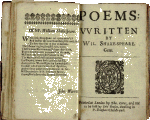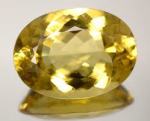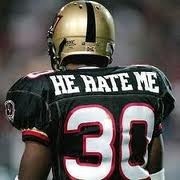 Last month we published tweets from my first thirty days on Twitter. This month, we publish a sampling of my best tweets ever, gleaned from the three years I tweeted regularly. A lot of thought went into each tweet when it was composed, and more thought has gone into selecting the “finalists” which made it into this new collection. I hope readers find them entertaining and thought provoking.
Last month we published tweets from my first thirty days on Twitter. This month, we publish a sampling of my best tweets ever, gleaned from the three years I tweeted regularly. A lot of thought went into each tweet when it was composed, and more thought has gone into selecting the “finalists” which made it into this new collection. I hope readers find them entertaining and thought provoking.
I’ve come to regret tweeting some of my original tweets, which, in retrospect, seemed to me too emotional and extreme. My son once told me my tweets were dumb. After reviewing all of them, it’s clear he was right about at least some of them. I no longer tweet regularly on Twitter.
Anyway, get ready for a controversial ride. These tweets are hot. If you disagree or have doubts or if you’re simply curious, click on the many embedded links to learn more.
Note: links have been added to some of the original tweets to provide readers with background and context. A few tweets have been edited for clarity.
If acorns tasted better, there’d be no need for farming.
The squirrels in our neighborhood have opposable thumbs & sometimes stand upright.
An airline CEO told a friend that 24 Al-Qaeda crews were active on 911. I know, sounds crazy.
Where’d daddy go? He died, momma. When’d he die? Two months ago, momma. Oh, did I kill him? Alzheimer’s 101
In the old days cigarette butts were everywhere. Now you rarely see one.
Living forever, or just one day, feels the same. We live in the present.
Going for a walk. Hope the packs of wolf-coyote hybrids NatGeo says are out there don’t eat me.
Has it occurred to anyone else that the Restasis lady may, in fact, be an alien?
We have freedom of speech as long as nobody listens.
If USA GNP was divided equally, every family of four would get $200,000 per year. [($15.2 T/309 M) * 4 ].
Clean coal is only clean before you dig it up and actually touch it.
During the next 25,000 years, containment structures for nuclear weapons will corrode & release plutonium killing all life on earth.
TWITTER-LOG: Day 40 – Son: Dad! Stop Twitter now! You sound loopy! Me: You don’t understand, son. I’m free.
What we learned during the past 10 years: throwing an election has consequences.
Have waited 50 years to vacation on a Cuban beach. Still waiting.
Love this animation showing how DNA/RNA works… http://t.co/rYaG8cau
Michigan has thousands of clear-water lakes. Fish got there from geese and ducks carrying sticky fish-eggs on their webbed feet.
Solar bottle-bulbs provide free light to folks in dark houses. http://t.co/1Hk01AA1
Only a nation asleep would allow individuals to accumulate billions of dollars. Are you kidding me?!?
Permitting the wealthy to go into the prison business presents incredible dangers to our freedoms.
If aliens are the size of grasshoppers, we might not notice an invasion until it’s too late.
Ayn Rand destroyed America.
Nuclear plant meltdowns are almost certain during earthquakes above 8.0. Since 1900, 100 have occurred, none in the USA. http://t.co/KUhuFw88
tend to lie about the effectiveness of their drugs.
USA GNP is 7% of its accumulated wealth. It’s why small changes in GNP don’t affect us much. http://t.co/PmHlp5xL
Billionaires harm democracies. You know they do. Set max. worth at $150 million. Those who have more must divest.
During slavery, plantation owners were the job creators. They created millions of jobs.
Research seems to show that brains decide seconds before humans are aware they’ve decided… http://t.co/1yngCw7b
The only threat to our freedom greater than billionaires is a government controlled by billionaires.
How differential gears work is hard to grasp. This video can help. http://t.co/GyR0ht6z
No such thing as trace amounts of plutonium. It gets passed around in wind & rain forever. You will never see the speck that kills you.
All drones are piloted by somebody.
I’m old and cold and not very bold; my teeth are inlaid with gold. My chin has a fold; I’m covered with mold; when I go, my nose I must hold.
We don’t need a revolution. We just need to limit how much people can steal before they have to divest. No more billionaires. http://www.theguardian.com/video
Pre-Civil War plantation owners were some of the most effective job-creators in our nation’s history.
Ayn Rand Objectivism is a modern day Divine Right of Kings written to convince the gullible that billionaires have a moral right to rule.
Squirrels have developed agriculture. They plant trees and store walnuts which they eat out-of-season.
Favorite Spartacus video clip… http://t.co/IsedM4xD
Copyrights that last years after an author’s death are un-American. People get money for what they didn’t write?
I love the smell of marijuana in the morning. It smells like freedom.
Capitalism is the plantation system of the old South renamed & repackaged for modern wage earners.
This explanation of ozone is very good… http://t.co/cwRrYIQo
Chances of being eaten by a mountain lion are 1 in ten million — unless the lion is 100 feet away & hungry.
This notion that somehow people are entitled to unlimited wealth is destroying civilization. Soon, we’ll be serfs again.
Big Tobacco — when they advertised in the 1950s — talked 70% of men into smoking. We can be brainwashed. https://watch?v=sxrCjmqRTz0
Advocates of nuclear energy are like the people of Easter Island who destroyed their civilization for a few more hours of campfire.
America has a permanent over-class. Until we deal with it, we are serfs.
Atheists would rob me of any hope against death.
Incandescent bulbs — now banned — are hot. We need them in winter.
40% of electricity bill is wasted charging AC/DC electronic devices. This fix is cool. http://t.co/8gWRO1l6
Plutonium escaped at Fukushima. How dangerous is it? http://uploads/1997/07/no-3.pdf
At the heart of every fortune lies a dark secret.
The wealthy have divested the middle-class & limited our incomes. It’s time to turn the tables.
USA politics consists of arguing about how aggressive the financial shake-down of the middle-class should be.
It’s the redistribution of wealth to a permanent over-class that we’re fighting against. #occupywallstreet
Fantasy-nightmare vision of Ayn Rand was a poison apple. It ushered in a facist USA, where billionaires now rule us. #ows
Gated communities are another form of segregation.
Homework in elementary school demoralizes students, short circuits passive processing, dampens creativity & makes kids dumb.
RT @pdjmoo: THE LIONESS AND THE CALF: Lovely Watch. A short documentary that will open your eyes. – http://t.co/S8okiyJ2
Baby Boomers are the Greatest Generation. They ended racial segregation & the Vietnam War. They started the high-tech revolution.
Rage and old age make a sage.
If humans were the size of squirrels and lived in people’s yards, could they survive?
RT @nytimesscience: Bursts of Fission Detected at Fukushima Reactor in Japan http://t.co/lZsThJNT
JFK fired the CIA Director who later sat on the Warren Commission.
It’s easier to control un-informed people. Education will never be cool while billionaires rule.
Nice one-minute explanation of GPS & effects of special & general relativity…
http://t.co/T1z6gUm4
Twenty-three million government workers in the USA. No way private sector can provide full employment. See pg 30. http://t.co/2Btdfbjs
Tea Party types don’t get that government is all that stands between them & tyranny by billionaires. Divest billionaires. #ows
Billionaires build their power by corrupting our representative government. Divest them. #ows
Well, Gitmo prison is going strong & we’re killing Americans with drones. What good is Obama besides not being a Republican? Just asking.
That country singer who used to crow, wanna watch some football? & called Obama Hitler was on CMA tonight. He got a standing ovation.
Billionaires seduce consumers into supporting “free markets” which they rule as personal fiefdoms. #ows
Billionaires used the tax cuts we gave them to solidify their vice-grip on our “democratic” institutions. #ows
Cults of personality never work out well. #Paterno
MSNBC reporting that the District Attorney in the #Paterno sex crime scandal went missing in 2005.
How many of those who laughed at Howard Hughes for using Kleenex boxes as shoes ever tried it themselves?
USA psycho-terror: Bahgram, Gitmo, SuperMax, rampant solitary. Sick minds created these nightmares.
Many billionaires are tied to drugs (legal/illegal) & the military.
Earth is broadcasting itself on all EM frequencies. If aliens are out there they will find us.
After Vietnam, anti-war activists were black-listed from top jobs. The consequences for the USA have been devastating.
If billionaires won’t agree to tax fairness, what other reasonable requests will they crush?
TWITTER-LOG: Day 117 – been following some celebs like Vonnegut & Von Braun. Even tweeted them. Wife just informed me, they’re both dead.
Portraying oppressor as victim is as old as human tyranny. #ows #OccupyEarth
Quantum physicists & priests approach absurdity in different ways: one through reason; one through faith.
Am passing by hundreds of hyperactive squirrels on my walks. Thus far, none have mindlessly attacked me.
Successful revolutions never have popular support until they’re won.
Rupert Murdoch of Fox News bought the Wall Street Journal. It’s Fox propaganda now. Don’t read it.
You treat us like dirt & live safe behind gates. The least you could do is pay some taxes. #ows
The Bush tax cuts gave more money to the average millionaire than a lifetime of social security checks.
Cuba has one of the best health care systems in the world. Our sick can’t go there.
Bell’s theorem is irrelevant if entangled particles are single wave-particle objects (like oscillating bubbles). http://t.co/qzWRDLqx
Carbon dioxide is heavy, so the little there is stays close to the earth where plants can breath it.
The notion — main-streamed by Ayn Rand — that taxation is theft ruined all that was fair & good about the USA.
If life is distributed over the widest range of temperatures then typical civilizations might be cryogenic & radio-wave sensitive.
The dilemma of the rich is they can only live in one place at a time, operate one transport at a time, make love to one person at a time.
People understand the Universe the way smart goldfish might understand the Earth.
Earth’s neighbors are small with little gravity. We can visit & come back. We have the perfect spaces to learn.
First thing women did after getting the vote was enact Prohibition — because their husbands drank & beat them.
This could be huge — esp. regarding intelligence & learning. http://t.co/8OEbNOtd
How did paper planes launched from a small number of boats & dropping unguided munitions sink so many ships at Pearl Harbor?
GOP repealed Michigan unit-pricing. At check out, we can’t tell if stuff rang up right. At home, we can’t review what we paid.
No black man has ever led a major world power until Barack Obama.
Kirk Douglas reflects on life in letter to Christopher Hitchens… http:/?2011/09/kirk-douglas-201109
Billionaires will be passing 30 trillion dollars to their kids in coming decades.
Somewhere in the oceans are a few genius dolphins. We should find them.
When looking into the eyes of war-dogs returning from Iraq, one can’t help feeling that some have seen too much.
Christopher Hitchens said his biggest fear was — near certain death & in pain — he might cry-out to Christ Jesus to save him.
North Koreans fake-cry better than citizens of any other country. http://t.co/qg3LFCWz
If private companies could create full employment, they would have to hire 13M unemployed & 23M govt workers: 36M people.
Government should provide free basic-food to anyone who wants it: potatoes, rice, beans, oil, corn. It would cost almost nothing.
Drew USA flag billowing in the wind. Teacher said: you can’t draw straight lines? Art career died that day. In kindergarten.
You never hear about good marriages, because the people in them aren’t talking.
All trees fall down, yet few people have ever seen one fall.
We could put direct-current fuel cells in every neighborhood in the USA for the cost of a few nuclear power plants.
People who make sure they eat at least three balanced meals per day are usually fat.
25 dimensionless constants make our universe work the way it does.
Nothing smells better to me than my own armpits.
If the current Social Security tax rate was applied to all income, it would provide $25,000 per year to every old person.
Genes, like those for intelligence, can be passed between species by viruses.
Didn’t watch GOP debate but am certain it was the stupid-est thing on television tonight.
RT @cracked: 5 Absurd Solutions to Huge Problems (That Actually Worked): http://t.co/RpJpSWYL
Einstein’s statement that God does not play at dice flies in the face of Proverbs 16:33.
Billionaire propaganda station, NBC News, is reporting Romney family origin was in Mexican poverty. That should work.
The Siberian wilderness in Russia has 35% more land mass than the contiguous USA.
Billionaires destroy democracies.
Assume reality is an [n x n] matrix. Then the least expensive # of dimensions is when (n^3 / 3) = n^2 . So n=3. http://ocw.mit.edu/index.htm
Romney said his speaking fee ($375,000) wasn’t much. It’s about what the President is paid per year.
RT @QuotesByArtists: There is no mistaking a real book when one meets it. It is like falling in love. — Christopher Morley
The Romney Flat Tax (15%) works out to a 300% increase on low wagers; 50% decrease on the 1%. Typical GOP idea.
Obama can sing like Al Green. Makes me feel happy. http://t.co/GspEqOEd
Never understood why anyone would put themselves on a boat with thousands of people they don’t know. http://www.cnn.com/travel/carnival
We don’t know the names of the billionaires who rule us.
Until we get it — that billionaires we don’t know rule us — nothing political will make sense. It not about us. It’s about them.
Insiders who killed Kennedy want us to know he was a monster.
The conspirators sat on the Warren Commission. They put a Secret Service agent on the grassy knoll. Oswald was a patsy.
Workers need a Bill of Rights. Take away employers’ power to fire “at will.” Due process required.
The public lives inside an information bubble created to entertain, not inform.
Politicians are not the best people to teach us about Jesus.
20% of Americans think the sun revolves around the earth. Kudos, USA. http://t.co/wWdEmDNv
Ronald Reagan accepted a $2M gift from the Japanese after his final term. Why? Auto imports?
Iran can get a nuclear bomb anytime by buying one from another country. What they can’t do is buy hundreds.
Expansion of space means our current vehicle technology — given unlimited fuel & time — can take us no further than 1B light years from Earth.
All cars in Iran run on natural gas. All cars in Brazil run on sugar cane flex-fuel. Why? The oil is running out.
Don’t kid yourself. If you are worth less than $20 million, you are one of the little people.
Most of USA’s best food is exported to wealthy nations. We import from poor countries to make up shortfall.
12% of voters who earn less than $25K/ yr have no photo ID. GOP says they shouldn’t vote.
RT @thequotemaster: Tact is the ability to describe others as they see themselves. -Abraham Lincoln http://t.co/J1mB7Eoa #quotes
The Bible is written for the wretched. It gives hope to the powerless, the exploited, the poor, the despised, the unloved.
Billionaires have the USA in a vice-grip. They control the media, courts & Congress. Everyone works for them.
In case you didn’t notice, Florida is still segregated. They have gated (segregated) neighborhoods everywhere.
The space between Earth & 1B light/yrs from Earth is expanding faster than our fastest spacecraft can travel.
Many Americans seem oblivious to the huge sums spent on ads to get them to accept the agenda of billionaires.
USA police forces are increasingly being manned by Iraq/Afganistan vets. Caution: these men are “militarized” and “weaponized.”
When someone says they totally agree with you, odds are they totally don’t.
The Bush family unleashed more hell on Earth than any family in recent memory. Kuwait, Iraq, Afganistan, 2000 election, 2008 crash; etc.
Anyone still remember when Enron & GOP drove Calif Dem Governor out & put Arnold in? Enron bankrupt & Calif a mess. Thanks GOP.
Enron’s Ken Lay sat next to Bush at 2000 Inaugural. Jack-boots in street, protesters on sidewalks. Anyone remember? https://www.youtube.com/
Anyone who can donate $100,000 to a politician is, in all probability, a crook.
Hunger Games shows a world where the wealthy use government to torment the common people for fun. Sounds like the USA.
USA is run by permanent over-class who inherited money, reputation and power from their parents. Divest billionaires. Tax them.
If everyone drove cars with Chevy Volt style power plants, we could dismantle pipelines.
Tea Party “christians” let negative ads manipulate them into nominating a Mormon billionaire.
President Obama’s statement about Jesus this AM… http://t.co/NX2ZYha8
Let’s calm down. No Court worth its salt is going to overturn health-care. That would be insane.
All wars are wasteful. When we left Vietnam we left billions in air-conditioners, office furniture, vehicles, buildings, etc.
Fibonacci series in music with astronomy graphics in case you missed it… http://t.co/JbsSsBuO
Either tax twillionaires 92% like Eisenhower did or divest them. Otherwise lose the country to a permanent over-class.
Even in the contest between beast & man, the outcome is not certain. No Country for Old Men.
RT @keepingitraw: Radiation from Fukushima Disaster Found in California Kelp http://t.co/E9qNMokO
Earthlings: your puny brains have created a simplified approximation of reality you call “mathematics.” Free yourselves.
Revolutions never have popular support until they’re won.
What did Castro do? He threw the Mafia out of Cuba & set up an egalitarian society. No wonder billionaires hate him.
The Coal Cartel is right about one thing. They have a lot of coal to sell. They are wrong about this: coal is not clean.
Can’t we all just stop eating bacon…? http://t.co/HwOCP3gL
Imagine a 28 yr old black man with a gun on neighborhood-watch picking a fight with your son & killing him. Manslaughter?
Hannity is reporting a Fox News poll that shows Romney beating Obama 46% to 44%. Might as well forget about truth telling for a while.
RT @Art_Guy1: FACT: Obama’s tax plan raises his tax rate. Mitt Romney’s plan cuts his own taxes in half.
Churchill: I like pigs. Dogs look up to you. Cats look down on you. Pigs treat you like an equal.
We had a leader of the NY Stock Exchange who made more money in one day than Obama makes in a year.
Rush said Secret Service hooker scandal is Obama’s fault, because he overworks agents & keeps them from their wives.
According to Gallup & Fox polls, the election is over. Romney will be President.
Are we going to throw out a sitting President to satisfy the lunatics…? Ted Nugent threatens Obama… http://t.co/TeBX54wE
USA has been war-ing Stone-Age peoples since Vietnam. It never tires.
Make it a felony to possess more than, say, $150M, in cash, property & assets. Limit yearly incomes to $15M.
RT @JeffDauler: RT @CassandraYoung: Just remember, kids: every time you make a typo, the errorists win.
Communism, Socialism, Capitalism are utopian fantasies that don’t exist & never will in the real world. The USA is what it is.
The problem with the USA space program was lethality to employees. At least 82 died during its tenure. http://List_of_spaceflight-accidents
Obama doesn’t look American. You know. Fat.
Most prosecutors in the South don’t bring charges against whites in racial cases due to chance of being disbarred. Like the Duke rape case.
RT @YourAuntDiane: I like to talk to everyone like they’re dying of a dreadful disease. It makes me a better listener.
One thing to remember about the BP screw-up: there are thousands of wells in the Gulf. They all leak.
Taxes on the one-percenters are one-third of 1960; one-half of 1980. https://www.yhoutube.com/watch
Mexicans are beautiful people. Why can’t we open the border & let folks drive back & forth freely?
If we divested billionaires & divided their wealth equally to every citizen, a family-of-four would get $1,250,000.
The price of two wars & tax cuts for the rich has been $60,000 per family. Could use the money right now.
Does anyone find this explanation of consciousness compelling? It is certainly fascinating in the extreme. http://t.co/OqWiKSz4
It would be nice if the equation for the Theory of Everything was found to be less than 140 characters, so it can be tweeted.
Money loses its promise at the point of dying.
Have been hearing that Social Security is going bust for 50 years now. It’s like a broken record. The 1% don’t pay Social Security taxes.
Most gazelles in nature never get eaten by lions. They never even see one. https://www.youtube.com/
We never hear anyone on television talk about divesting billionaires. Why is that?
One of the good things Bush did as President was to popularize the now famous lexicon, Mission Accomplished. https://www.youtube.com/watch? https://www.youtube.com/watch
There is always some new disease to worry about and a drug dealer on TV eager to sell a solution. Only in America.
Americans don’t know the names of the billionaires who rule them. Who will tell them?
How do they keep black folks out of the Derby?
GM makes the best cars.
There’s this CIA guy named Rodriquez who is going on right-wing television slamming our elected officials. Weird.
When the wealthy push down wages, skilled labor evaporates.
Safety regulations, which auto firms once fought tooth and nail, have saved over 200,000 lives.
Leonard Susskind said it will take an accelerator the size of our galaxy to see the smallest particles. We aren’t there yet.
We had hamburgers tonight with no pink slime in them. What a difference. So good! https://www.youtube.com/watch
The game of pushing black men until they finally stand their ground and get killed or imprisoned is as old as America. #trayvonmartin
Honest people who have integrity and are not greedy cannot be cheated. They can be robbed and sometimes are.
It should be a felony for a private citizen to possess a billion dollars.
#ThoughtsLiberalsHaveAroundConservatives This guy’s a lunatic. Hope he doesn’t shoot me.
RT @therightblue: Antibiotic residue in seafood purchased at US grocery stores, experts say: http://t.co/mIPRDzFX
USA dropped equivalent of one Hiroshima bomb per day for 25 years on Bikini atoll. Ruined tourism. http://www.youtube.com/watch
Do you self-censor tweets, because your employer is watching? That’s not freedom.
God is kind to the ungrateful and the wicked. Jesus.
Should we be fishing from the same pond we drill our oil and dump our garbage?
Long after humans, and all we’ve built, have vanished, alien visitors will know we were here from the plutonium we left behind.
Thirty-seven old nuclear plants on the Great Lakes with no place to store high level waste. http://t.co/Iasqrjn3
A country like the USA comes along once in ten-thousand years.
First Silent Majority, then Moral Majority, now New Majority. The GOP is always trying to start a bandwagon.
Still remember nuclear engineers telling me in 1977 that nuclear power was safe, and waste storage was no problem.
Seems like China is going to own the moon, it’s helium and rare-earth metals.
This Colbert quote about Christian Nation is pretty good. http://t.co/lZIMNw7j
Yes, it’s hot. But look at the bright side. In the next few years, it’s going to get a lot hotter.
RT @QuoteRevolution: The evils of tyranny are rarely seen but by him who resists it. ~John Hay
If you can discourage 1 out of 100 voters from voting by requiring photo ID, you can throw a lot of elections to the GOP.
Are Focus on the Family execs calling the USA to pray for rain at Romney nomination speech like they did for Obama 2008? http://t.co/XIdXcclo
How they hate Obama. What’s he ever done to them?
We learned how much the GOP wanted America to succeed when they refused to be led by a black man and trashed our country’s credit rating.
Billionaire-owned media portrays a failed President. But he saved the USA from collapse, killed OBL, passed medical-care.
We knew the Vietnam war was lost when USA soldiers fragged their officers. Afghan green-on-blue is same thing.
The political dominance of billionaires is USA’s biggest problem. GOP’s solution? Make one President.
The only thing not better than four years ago is right-wing media. Those morons never shut up.
Everyone fights for the middle-class. But they’re in the top 20% of income earners. What about the vast under-class?
It feels like the GOP/right wing/media/billionaires are sucking the air out of America. They are relentlessly negative.
As we age, our bodies become less like prisons and more like torture chambers.
It is disrespectful to bear-hug the President and lift him off his feet. The man is lucky he wasn’t shot.
USA should pass amendment making anyone who serves as President more than 3 years a natural-born citizen. Would shut-up birthers.
Tell the truth. Weren’t you scared of the Axis of Evil and Saddam’s WMD’s? GOP scared the crap out of us. No way we let them back in.
Only one person knows what it’s like to be the first black President.
The six Billionaires who own 85% of USA media have convinced most Americans it is a “liberal media.” Wow.
Romney said he will end estate taxes, which are the last defense the USA has against the establishment of a permanent royal-class.
GOP hack, John Sununu, called Obama “lazy” on Fox News.
Obama said he wasn’t perfect to counter GOP websites that are saying he claims to be Jesus and, therefore, is the anti-Christ.
Can’t remember an election with no GOP bumper stickers. Haven’t seen a Romney sticker yet. Anywhere. Strange.
Ambiguity is a tactic artists and politicians use to attract a mass audience.
It’s hard to believe that the land of the free and home of the brave would let 400 people sequester 1/8 of our national treasure.
Imagine Obama losing 241 Marines to a terrorist attack; losing an entire Shuttle crew; flooding the USA with Japanese cars…that was Reagan.
If the tax rate was at Kennedy levels, the USA would be awash with surplus cash.
To put things in perspective, Romney will get $4,566 from his annuity during the debate. Obama will get $91 from his salary.
Romney says his dad was born in Mexico. I remember when his dad ran for President. He said he was born in the USA, I think. https://www.youtube.com/
Today, Federal investigtors revealed more Secret Service agents using prostitutes while on duty overseas.
I don’t want to believe the GOP is strong enough to overthrow a President who hasn’t done anything wrong.
Many Christians turned on Jimmy Carter with a vengence. Now they rally around a Mormon to destroy Obama who is a convert to Christianity.
I keep waiting for conservatives to come to their senses about Obama — a brilliant and decent man. They never do.
What good is democracy if the billionaires always win?
Employers threatening to shut-down if Obama re-elected reminds me of threats to close shop if Civil Rights Act passed in 1964.
Today my pastor preached that Obamacare forces church organizations to participate in abortion or go out of business due to fines.
People think taxes will go down on the middle-class if Romney is elected. No, taxes will go down on the billionaires.
No one on television or radio or in newspapers or magazines will ever tell us to tax or divest billionaires. No one. Never.
How can anyone say USA is free when 400 families have sequestered 1/8 of our national treasure? Our country is a plantation.
Obama, a born-again Christian, must feel like Jesus himself as Christian leaders desert him for Mormon Romney, a compulsive liar.
Christian leaders showed their true colors this election. They took sides with the rich and powerful.
Put a Mormon missionary billionaire with strong ties to Mexico who won’t financially disclose in the White’s House?
Romney/GOP convention disrupted by hurricane. God making statement? http://thecolbertreport — hurricane-isaac
Seems like during every storm we find hospitals that put their back up generators in the basement where they are disabled by floods.
Four more days until Romney goes away. Can’t wait.
Female CNN announcer just said “atta boy” to Don Lemon. Young people don’t get how racist that sounds.
Do white people in Florida stand in four-hour lines to vote, like they make their colored folks do? Just asking. https://www.youtube.com/
On C-Span, just heard South Carolina woman say, Obama is the best candidate; and, yes, I am white.
#LieLikeMitt Jesus is Satan’s brother. Look it up. And thank you to all Christians who are voting for me.
Hope Romney and Ryan have a sense of humor, because the election tomorrow is going to be a joke.
Romney just lost in NH and Mass. where he has homes; MI where he grew up; and Wisc. where Ryan is from.
Thank you, Jesus.
Christian leaders hate Obama, because “sinners” love him.
Evangelical leaders sided with southern racists and the rich and powerful. https://www.youtube.com/watch
Romney was going to do a fireworks show in Boston Harbor after being declared winner. Thank God, it didn’t happen.
RT @A_ThinkingGirl: Boehner and McConnell Dissed Obama on Election Night; Refused Phone Calls from the President http://t.co/Pw4JkhpE
Thomas Ricks just told CNN that if you haven’t had an affair your not a player in the CIA. That is disturbing to me.
Getting old. Tweeted “your” instead of “you’re.” Sorry. Please forgive me.
Officers serve subject to the Code of Military Conduct. It prohibits adultery.
People who are good at maximizing their personal advantages over others often consider themselves worthy of further advantages.
Any business owner who lays off his workers because Obama won is mean-spirited. We need a bill of rights for workers.
Always thought embracing Bush holdovers like Betray-us was a mistake. Imagine if he’d been Romney’s VP choice.
Romney thought he was the savior on a white horse foretold by . Maybe next time.
RT @MariaLiaCalvo: Obama cries as he thanks his volunteers and campaign staff; Romney fires his staff and leaves them stranded.
From our adversaries point of view, Petraeus — who led the fight against them on behalf of the “great satan” — is an adulterer. Ouch.
Paula Broadwell might want to apologize to the nation and to her children and to her lover’s wife.
Never admired Petraeus, because Cheney and Bush pushed him into top leadership. Obama should have cleaned house, but GOP prevented it.
Got my skills going to school while on unemployment. Kids can’t do that today. GOP regulations destroyed this option in Michigan long ago.
Of all the top biographers Petraeus could have picked, he chose Paula Broadwell. It was a clue.
Would like to know if the Muslim militia got their prisoners back during Benghazi attack.
People love to go to war. Years later they complain about how it ruined them.
General Allen of Afganistan is now under investigation for links to Lebanese-American, Jill Kelly. Wow.
What we are witnessing is a high level purge of Bush protégés as Obama finally takes control of USA military and intelligence agencies.
RT @keepingitraw: Sky-high levels of radioactivity in fish from Fukushima means inedible seafood for at least a decade. http://t.co/vM3IyCbH
The Monica-Benghazi scandal is in full swing on the Hannity show.
Dear God, Barack Obama is in the belly of the beast fighting for what is right. Thank you for your holy angels who guard him.
Friend of my sister went back to her New Jersey apartment a week after Hurricane Sandy to find it ruined, not by water, but by rats. Everything lost.
I hate war because you have to choose sides, everyone suffers and, in the end, you compromise anyway.
GOP Generals underestimated Obama.
We need to help our Conservatives heal. They came within four-million votes of electing a lunatic. What is the cure?
John McCain, under torture, signed a confession and attempted suicide. No one blames him, but that’s what happened.
Limiting doctor salaries to $400K/year would discourage greedy people from becoming doctors. It would help everyone.
Obama cried after election, just before news broke on Petraeus. It may be an indicator he really was just finding out and dealing with it.
Am hearing that Hostess execs looted the company before firing the 18,500 folks who created the wealth they took.
Letting individuals keep unlimited wealth and field private armies is a bad idea unworthy of a free people.
You’d think Obama would have carried more southern states, since large black populations voted 90% for him. He didn’t carry any.
Surprising to learn that people who couldn’t say who ran for President in the last election knew all about the Hostess Twinkie crisis.
Billionaire media owners drone endless negativity until they get the President they want. Then messaging gets positive. Remember Reagan.
The big problem for America is the voracious appetite of our billionaires and the vast underclass they have created in their wake.
What DNA actually looks like. http://t.co/msEjIPEG
In the 40’s and 50’s most white people saw nothing wrong with segregation. Today, they see nothing wrong with gated communities.
Executive gangs who pay themselves huge salaries are not creating value. They are looting.
Billionaire owners of NFL teams don’t get traumatic brain injuries.
NBC reported that Boehner avoided receiving-line at holiday party last night, so he wouldn’t have to shake Obama’s hand.
At the root of our fiscal-cliff crisis is the belief by the GOP that the country is not worth saving as long as Obama remains President.
RT @ReformedBroker: “If Buffett didn’t exist, the rich would have to invent him.” http://t.co/Xz3HHVCj
Billionaire media owners want Americans to think there is something cute and innocent about British-royalty.
The GOP is fighting a war, not for freedom or fairness, but for the idea that a handful of families are entitled to own everything.
All the good jobs go to the children of the wealthy.
Want to limit corruption? Make it a felony to keep more than $15M per year or own an estate larger than $150M.
Billionaires are every bit as wicked as anyone else. The difference is, they have a billion dollars. That’s scary, or it should be.
GOP named Right to Work law to hide its intent to weaken/wreck unions and drive down wages and benefits.
If athletes and actors make millions, what do you think the people who pay them make?
Michigan GOP exempted cops and fire fighters from Right to Work law. Cops won’t get the “benefits” of working for less money.
Hundreds of cops are standing guard around Michigan State Capitol through Thursday. Cops exempted from Right to Work by GOP bill. https://www.youtube.com/watch
Someone said boxing is morally wrong, because one human has to inflict injury on another human to win.
Billionaire advertisers in Michigan are calling RTW “Freedom to Work.” Yet they won’t free cops and firefighters. They need them on their side.
Can we please raise taxes on the wealthy to stop the looting? If you are greedy, go to Russia or Mexico and loot there.
I remember that in the 1960s most Americans thought Nelson Mandela was a black communist thug who should rot in prison. Times change.
If America was free, most companies would be employee-owned and most companies would have unions.
Lack of limits on the personal wealth of its rulers is what wrecks Capitalism for the vast underclass who must endure it.
GOP leaders are charging protestors who crossed police-lines with felonies. So, now we have political prisoners in Michigan.
If Right to Work is so great, why did the GOP exempt police and fire unions? GOP is not interested in fair play, apparently.
The way to balance our budget is to spend more money on the poor, elderly and disabled. It’s counter-intuitive but always works.
If it weren’t for six billionaires who own 85% of the media, we would be arguing about how much to increase Medicare and Social Security.
GOP deficits are always the result of looting. Think of all the money wealthy families stole from the USA during Bush years.
Since the Reagan era the wealthy have had no limits on what they can make and keep. It’s why they loot.
Unless limits are placed on personal incomes and estate size, capitalism always devolves into a kind of feudalism.
GOP advertisers are flooding Michigan with this message: Protect collective bargaining. Support Freedom to Work. Right out of Orwell’s 1984.
Amazing how Michigan GOP sprung Right to Work on us at the very moment a mega-million dollar ad campaign for its passage appeared.
It’s already impossible to start a Union in Michigan. Right to Work will enable business owners to kill off the few that still exist. https://www.youtube.com/watch
Surprise attack on Unions by Rick Snyder and GOP was well-planned and executed. Felony charges against protestors is the frosting on their cake.
The wealthy work overtime to undermine confidence in elected government.
Billionaires, some tied to drugs and guns, know how to get their way. It’s not easy to speak truth to them.
People think unlimited wealth is an incentive for innovation. Not true. It enables looting and the suppression of competition.
Regular viewers of Fox News don’t get that the joke is on them. Sad.
It’s un-American to let kids inherit vast wealth they didn’t work for. It threatens our freedom. http://t.co/8tsf3aPj
There isn’t a gun made that can defend against a government-sponsored SWAT team. Get real, NRA.
More Guns = Less Crime; Clean Coal; Right to Work; Virtue of Selfishness; Gated Community; Genetically Modified Food; all wrong.
MI GOP passed a law to allow concealed guns in church, schools, stadiums and daycares.
Am told the shooter was draped in Kevlar. Teacher with a gun would have been helpless.
Was doing good until the President mentioned a six year old who knew karate and wanted to lead everyone to safety.
Reagan closed the mental hospitals. http://t.co/D2E9mZ5Z
The Lord sides with the oppressed; feeds the hungry; sets prisoners free; gives sight to the blind; lifts up those who are beaten down…
Jesus was born a baby, so as not to frighten us.
Old age has ruined me, physically and mentally. But #Jesus renews my spirit, and somehow, I feel better.
Will someone invent an iPhone that can be charged by body heat? #goodIdea
Would NASA position some colored lights in the sky so everybody can navigate by sight? #goodIdea
The right to accumulate unlimited wealth has brought corruption and looting on a massive international scale to all areas of human endeavor.
An NRA family member murdered 20 six-year-olds, and they threaten the President’s kids?
It’s time to amend the Second Amendment.
Obama tries to protect kids from gun violence, so the NRA vilifies him and drags his kids into it.
Make a list of legal guns. Guns not on the approved-list are illegal. Will prevent work-arounds by gun sellers.
Am reading Oliver Stone’s Untold History, a Christmas gift. Have yet to read a single page where he hasn’t blown my mind.
Gun makers should be required to get a license to sell each gun-model they manufacture. If it’s a weapon of war, no license.
This is an impressive crowd — the haves and the have-mores. Some people call you the elite. I call you my base. Bush, 2000.
In 2006, the 25 top US hedge-fund managers earned an ave. $570M each. In 2007, it jumped to $900M. Oliver Stone, Untold History.
GOP says they are against tax increases, but in Michigan the GOP raised taxes on seniors by $1,000s / year.
Everything written or broadcast is recorded, stored and analyzed. It’s been going on since the 1950s. It’s raison d’etre for the NSA.
RT @MiaFarrow: JFK Report to the American People on Civil Rights, 11 June 1963
http://t.co/jZNo5UgYMz
Google has pics of the outside of our homes. The government has pics of the inside — taken through our computer camera-lenses.
Obama taught us, unwittingly, that bad people with ugly thoughts and hate-filled hearts really do live in America.
 Seems like CNN covers the weather while FOX covers Obama-Care. Who covers the news?
Seems like CNN covers the weather while FOX covers Obama-Care. Who covers the news?
Christians bearing false witness against a President who says he belongs to Christ makes no sense to me.
Billy Lee




































